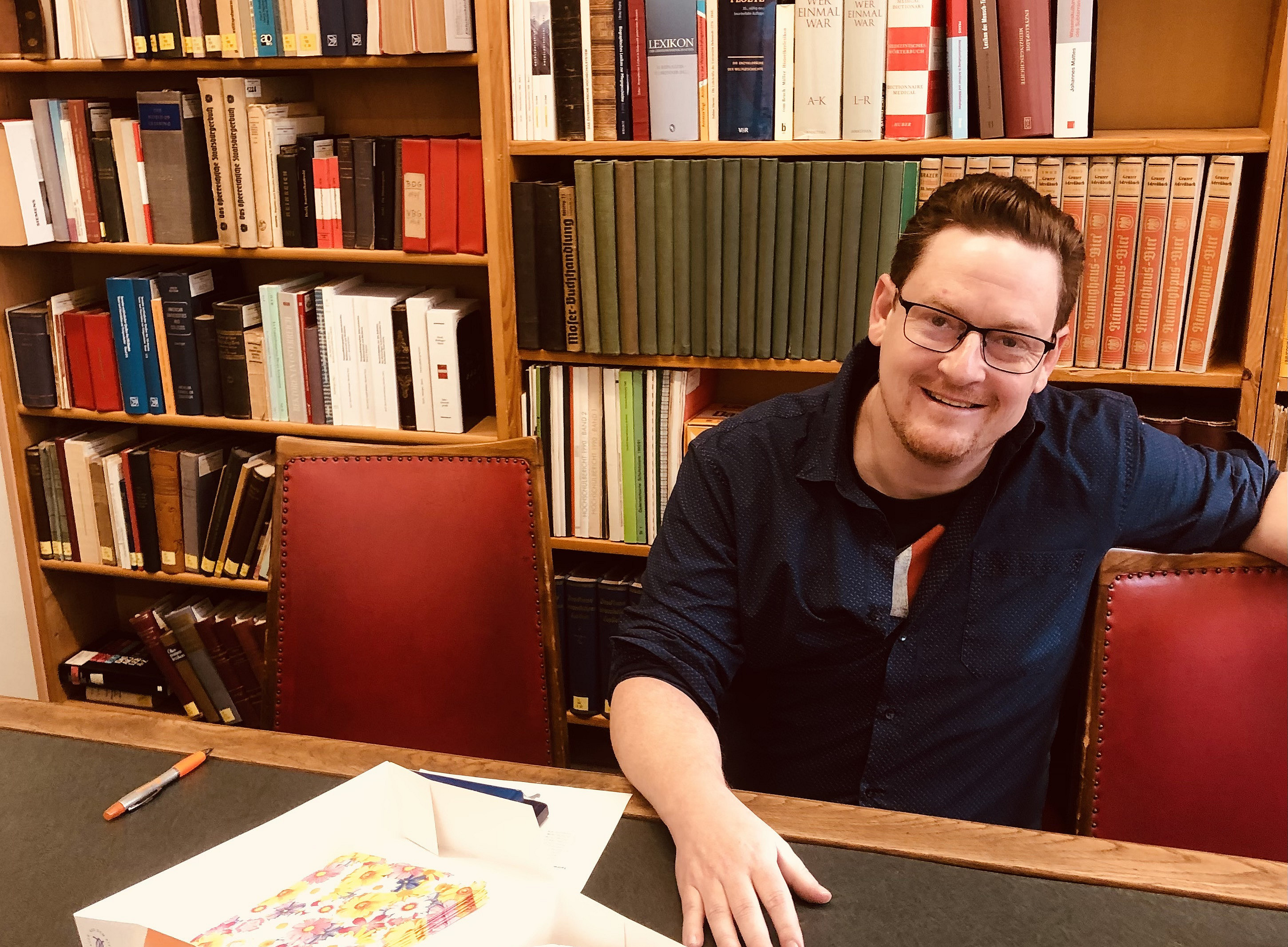11 researchers from different disciplines (and universities) came together on February 5, 2024 in the University Archive to discuss merits, dangers and tools of public engagement and science communication with expert Peter Pichler.
The term Public Engagement describes a practice of the scientific community where a conversation between research and society is established – it is based on the attitude that research and society benefit from mutual exchange. Public engagement can be useful in terms of raising your profile and enhancing your research. And it increasingly is part of research assesment. In Horizon Europe for example, open science, which includes public engagement, is one of hallmarks of excellent research.
Peter Pichler is a cultural historian, interested in the influence of social developments on heavy metal (among other things!), blogs about his research and has shared it on many stages. He started the discussion off with three basic considerations (broadly summarized here):
- do not be afraid to proactively communicate your own topic; experience shows that there is much more interest than you first expect
- look for current social and broader discussions as points of reference
- consider what is in it for you as a researcher to get involved in this way
The discussion delved into many different areas. Such as:
What can make you hesitate to engage in science communication?
- Traditions in your discipline (such as a lack of networks with schools, museums, policy makers...) or practices in your research group influence how „doable“ scicomm & public engagement feel to early-career researchers.
- It might appear that you produce nothing of relevance for a „broad“ audience because a widely impactful result of your research is some decades down the line.
- Or your research might be „too relevant“ (such as exploitation of local communities for globalized food production, or migration issues), making you fear that you can create misunderstandings.
- As a female researcher, you mightn't want to risk reactions such as "she's shamelessly self-promoting..." or getting hate online when talking about complex issues.
- It takes time and creates a workload next to what you "actually should be doing".
What are ways to approach this activity productively?
- Be strategic in who you want to reach and why and choose your media & tools accordingly.
- Use metaphors, comparisons, connections to your audiences' lifeworlds to "hook" them in and interest them.
- See how you can combine public engagement with the rest of your work to make it reap more benefits (with teaching, with data collection, ...)
- It is an ongoing process - if you feel you were misunderstood, you have another chance with a new act of communication, as in everyday communication.
- Try out different tools, let yourself be mentored, and select those you can do authentically.
Additionally, you should reflect
- is this for me
- who is your most important audience
- what can I connect to that is currently of general interest
- when is it good to reach out
It was so enjoyable to discuss all this in an interdisciplinary and international group, who posed honest, critical questions and described their practices freely. Here are some interesting links, in case you want to read further:
- Our own info page: https://postdoc.uni-graz.at/en/how-to.../communicate-my-research-results-and-engage-the-public/
- There is a recent document from Germany guiding people who shape the dialogue between research and society: The Principles of Public Engagement | Berlin School of Public Engagement and Open Science
- RCUK published a useful guide, ‘What’s in it for me?’ and Vitae’s ‘The engaging researcher’ provides guidance
- Let us know if you have anything to add to this list!
